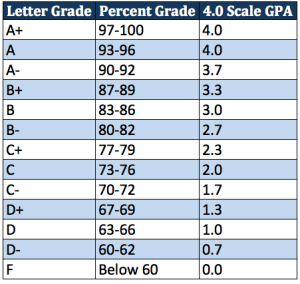On Take Your Success, I regularly interview top-performing college students to understand how they’re successful, so you can recreate the success in your life. Take what’s helpful, dismiss what’s not!
This week I interviewed an Ohio State senior and biochemistry major—Brian Thompson. He has done intensive research for companies and universities, including the position of Research and Development Intern at Procter & Gamble.
Thompson is one of the brightest people I know. After an incredible answer to a question, I remember asking him, “How are you so smart?” as I expected to hear some secret. Instead, he simply said, “It’s all about hard work and preparation,” which anyone can do.
This leads to my next point, Thompson is also one of the most humble people I know. I think it would be tempting for him to walk around with this attitude that he is the man and no one can touch him intellectually, yet instead he meets people where they are at. I can’t think of a single time where I heard someone say a negative comment about Thompson in a serious manner.
So, let’s get to the interview. For clarity sake, he will go by Thompson since we share the same first name.
——
Brian R: Give us a picture of your study habits.
Thompson: I typically study either at the library or by a desk in my bedroom. I prefer silence when studying so I very rarely listen to any music or have the television playing. Additionally, I like to get most of my studying done before 11 pm. Because after 11 pm, I’m too tired to really focus. So, it’s just a waste of time to study late, at least for me.
Brian R: If you had to pick, what would you say is the number one factor to getting good grades in college?
Thompson: I would say the single most important factor in getting good grades is not only going to class, but going to class prepared. Do the homework required (read the chapters in the book you are covering, write the rough draft, try to understand the concepts, etc.) prior to class so you have an opportunity to ask questions and get clarification. Professors are a great resource for succeeding in classes.
Brian R: What would your friends or teachers say you are elite at?
Thompson: I would probably say time management. I am typically on top of my classwork and very rarely have to cram for a midterm or final.
Brian R: What are you doing next fall? And what’s your long-term goal?
Thompson: Next fall I’m starting graduate school in Pharmaceutical Sciences at the University of Michigan. My long-term goal is still kind of undecided as I may work in the pharmaceutical industry or in academia.
Brian R: I know you had multiple acceptances to different graduate schools. So, how did you go about deciding?
Thompson: Several factors weighed on my decision including the prestige of the program, the location, the professors I would have the opportunity to work with, and the quality of life I would expect as a graduate student. Michigan really excelled in all of these areas and additionally they offered me a fellowship.
Brian R: Do you recommend that people who are applying to graduate school speak with a professor in their potential future program? Why?
Thompson: If you are applying for graduate school I would definitely recommend talking to professors in their potential future program. These professors are going to shape the research you conduct in your graduate school and their assistance during this time will be invaluable.
Brian R: Where did you find scholarships for undergraduate and graduate school?
Thompson: My search for scholarships was greatly aided by my academic advisor who not only has the knowledge of scholarships within the university but also the ability to contact various entities outside of the university (i.e. companies) in search of scholarships.
(Brian R. interrupting for a second—scholarships are one of many solutions when talking about how to fund graduate school.)
Brian R: For fun, how do you feel about going to a grad school (Michigan) that is a bitter, football rival of your undergrad (Ohio State)?
Thompson: I definitely have mixed feelings about this. However, I will always be an Ohio State fan so the next several years of college football may be kind of awkward for me in Ann Arbor.
——
This interview is interesting to read, yet it is significantly more valuable if you can gain some takeaways that will improve your success in college. So, here are the key points that I found and questions for you.
The fact that Thompson knows when and where he does his most focused studying stood out to me first. By finding his silent environment before 11 pm, he is able to immediately focus on the task at hand.
In application to you, have you found where and what time you study best? If you have, great work. If you haven’t, then experiment with some different places until you know what works best.
Second, Thompson said he excels at time management to the point where he doesn’t have to study after 11 pm. In another interview with a student body president, she also details the importance of optimizing time.
So, how well do you manage your time? Do you wish you never had to do work after 11 pm? You can start improving by thinking about your typical week, and times where you struggled to stay on schedule. Then, each day you can write down what you need to do the next day and follow through. It works.
Lastly, throughout this interview I saw examples of Thompson succeeding by reaching out to other people for help. He asks his professors for clarification on topics, talks to grad school professors to narrow down his choice, and communicates with his academic advisor to find scholarships.
The point here is that you don’t need to do everything on your own to be successful. I encourage you to ask your classmates or your professor a question when you have one, go to people for help in finding an internship, and reach out to those who are in the career path that you might want to pursue. Other people can help you go way farther than you could go on your own.
Readers, comment on: What did you find most interesting in this interview? Or is there anything else that you observed?



